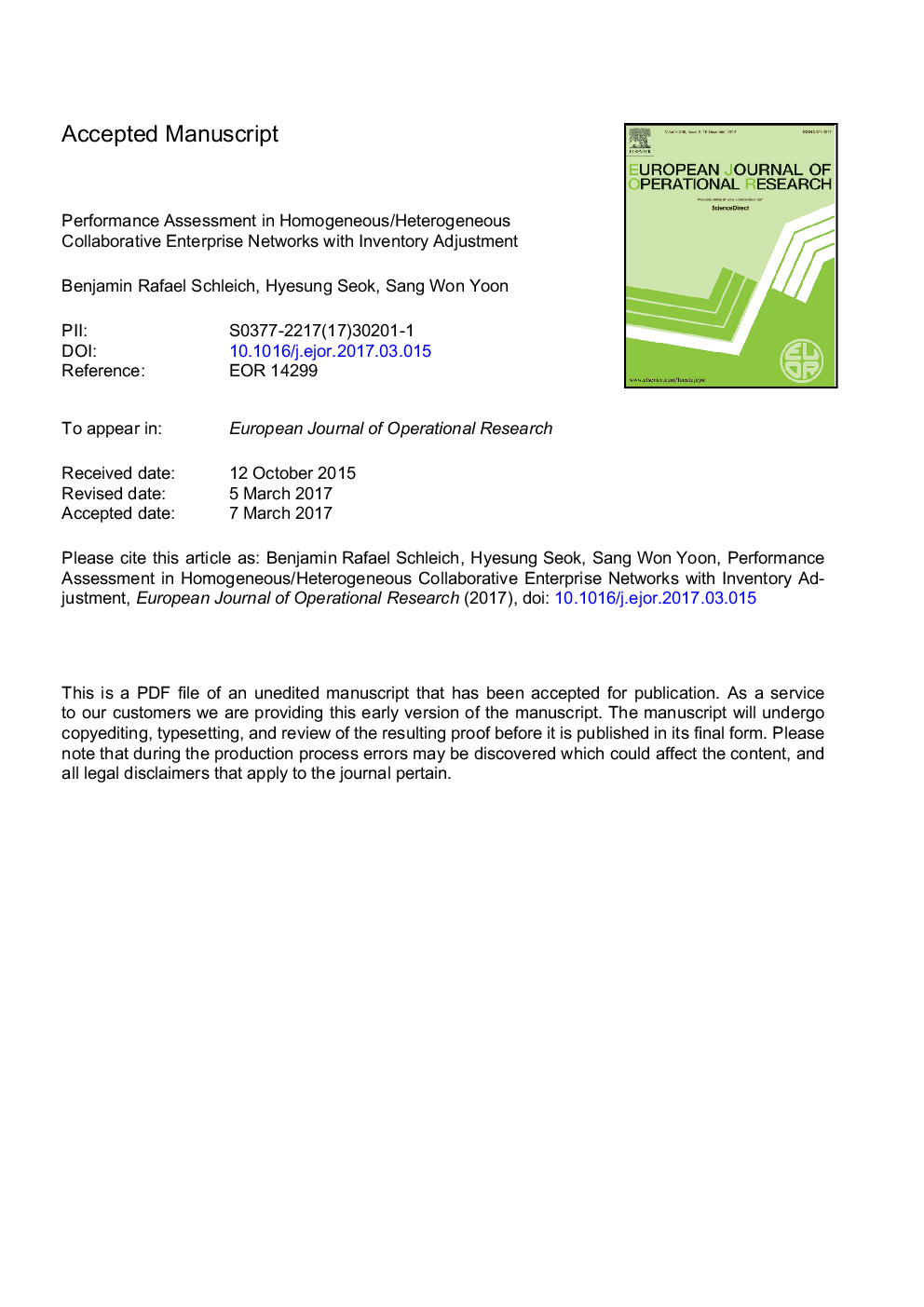| Article ID | Journal | Published Year | Pages | File Type |
|---|---|---|---|---|
| 4959479 | European Journal of Operational Research | 2017 | 42 Pages |
Abstract
Globalization has not only reduced product prices but also increased product and service availability. As a result, demand and inventory reallocation between collaborative enterprise network (CEN) members has become essential to improve performance and competitiveness. Previous research focused on decentralized collaboration and partner selection, with an emphasis on inventory management and demand allocation. However, balanced reallocation strategies with benefits in every period for all network members have not been studied sufficiently. Hence, we have proposed the Proportional Inventory Deficit Satisfaction Algorithm (PIDSA), which supports more efficient inventory- and demand-sharing among all members through balanced collaboration based on single enterprise and network characteristics. The performance of PIDSA has been validated and analyzed by comparing three models: No Collaboration (NC); Partial Collaboration (PC); and Complete Collaboration (CC). Both PC and CC follow PIDSA, but only CC uses inventory adjustments. As CC has a higher collaboration level than NC and PC, we expected CC always to outperform others. However, experimental results show that this is not the fact. It can be concluded that the level of collaboration should be changeable and be dependent on network conditions. It implies that proper collaboration modes should be applied to maximize the performance of different CEN configurations.
Related Topics
Physical Sciences and Engineering
Computer Science
Computer Science (General)
Authors
Benjamin Rafael Schleich, Hyesung Seok, Sang Won Yoon,
